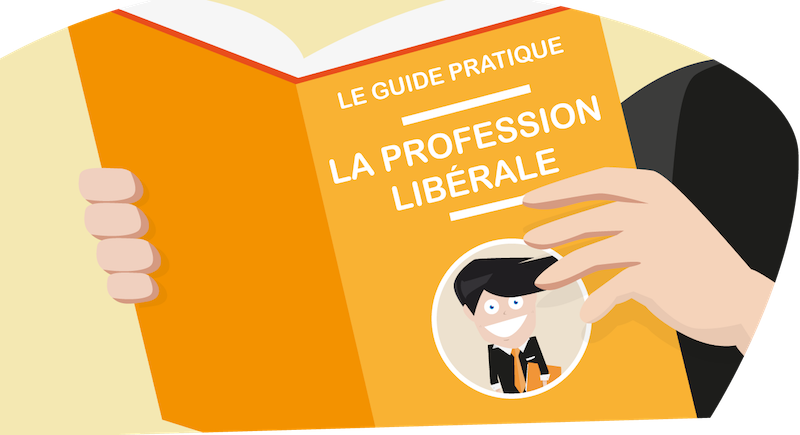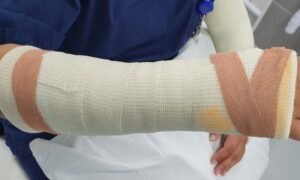(Editor’s note: This post on the Profession Libérale visa was originally posted on Toffee Bits & Chocolate Chips. It’s reposted here with the permission of the author.)
It wasn’t on the consulate website, and I couldn’t find any information about it online, but I’d heard whispers of it. What was this elusive visa? The Profession Libérale visa is like the magical unicorn the Skills and Talent visa used to be.
 But it’s much easier to get, if you meet certain guidelines, and is renewable … forever.
But it’s much easier to get, if you meet certain guidelines, and is renewable … forever.
The Profession Libérale visa allows freelance work in France. Unlike most other visas though, the requirements are not outlined on the Consulate websites (at least not at the time of this article). A lot of the time it felt like I was flying by the seat of my pants, blindly crawling through bureaucracy hell, but I got the visa!
Unlike other work visas where you are tied to the company that sponsors you, this visa allows you to work for yourself, giving you the important ability to move from company to company without losing your visa and having to return to your home country.
The guidelines in France do tend to change frequently, so I would suggest working with an immigration specialist and checking with your consulate for the current requirements.
The preparation phase took me about a month and started with an email to my consulate in Texas which resulted in the below rather short list:
- Proof that you have a professional goal. Please, write a letter and come with professional contracts in the past, present and .. for the future (if you can).
- Come with diplomas according to your job, certificates proving your level and experience etc. … with a summary of your activities.
- Proof that you have enough money in your bank account (roughly a minimum 1200 dollars per month during your stay in France, aka the minimum wage).
- Proof of accommodation in France.
- Medical insurance with a 0 deductible and,
- A criminal record provided by DPS TEXAS OR FBI.
It wasn’t vague but not really specific either. The last four points are straightforward. The first, not so much.
There are so many things that could apply, and what does it mean? I tried searching online and found a list on “The Official Visa Website for France.” But that was it, and again, it was extremely unhelpful, and even more vague than what the consulate had emailed, simply asking you to contact your local agency for more details. A 3-hour chat with a lawyer later, and I’d cleared up several questions.
• 80 percent of the file should be in French. No need to translate diplomas. You had to apply for it in your home country.
• Proof of my professional goal should come in the form of a short business plan, recommendation letters from a couple past jobs, pay slips from my most recent job, and then letters of support from people in France that want to work with me in the future. ie. Past-Present-Future
The letters of support are important as they provided specific contacts of people that I would be working with if I got the visa and included the type of work and estimated pay, showing France that I would be helping the economy and that I had clients.
These are not contracts but rather a written letter of intent with no obligation on either end. With each letter I obtained (between 5-7 in total), I asked for the signed original copy on either an official letterhead or stamped with the business timbre.
My dossier ended up being 60-plus pages (I’m not really sure on the exact count, but that’s what I’m estimating based on multiple copies I’ve made of the whole thing at the Office Depot down the street). It started with a summarized business plan, stating my background and supporting facts about my skills in the jobs I would be doing in France. Then I listed the different types of jobs I would perform, the estimated target market, and the revenue.
This ended with my financial estimations for a year and a statement of the financial backing I currently had.
After that, it was all of the normal papers you think would be included in a visa application: a copy of my passport, my CV, diplomas, proof of financial support (bank statements), apartment contract in France, a translated birth certificate, health insurance coverage and a background check.
Then came the visit to the consulate, which for me meant an expensive ticket to Texas, as you cannot apply for the visa from France, and a ten-hour round-trip drive for two 5-minute-long meetings: the first to drop off my application and the second to pick up my 3-month “starter” visa, to be renewed upon arrival in France.
The whole review process took about a month, but I’ve heard it can be as fast as two weeks for a decision. After that, there was more paperwork in France to get through before a meeting at the prefecture to get my true one year visa – PHEW! Essentially, I had to sign up as a business either as a micro-entrepreneur or another status, and then prove that I’d done this at the prefecture to get my carte de sejour for a year which is easily done online.
It sounds complicated and difficult and like a volcano of paperwork, but when all is said and done, having this Profession Libérale visa is invaluable.
It can be renewed as long as you are making minimum wage each month. The renewal is pluriannual, meaning when the renewal is accepted, they have to grant you a visa for more than 1 year, and up to four!
My hope, fingers crossed, is that my renewal is for the max four years, and then at that time, I would have five years under my belt and enough to apply for citizenship: the golden ticket for all expats.
 About the author:
About the author:
Ever attracted to all things sweet, Molly left her marketing career in Texas to become a certified pastry chef at Le Cordon Bleu Paris in 2013. She worked for several pastry shops in Texas including Bisous Bisous Patisserie, voted best bakery in Dallas in 2015, before returning to France.
Since then she has helped open a Mexican restaurant (her other love) and worked at Chateau de Gudanes.
Currently, she is in Strasbourg working in freelance, writing, teaching pastry, and baking up a storm. You can follow her musings on being an expat in France and catch a recipe or two at her blog: Toffee Bits and Chocolate Chips blog here.
She also posts her recipes on Facebook, which you can see here.














